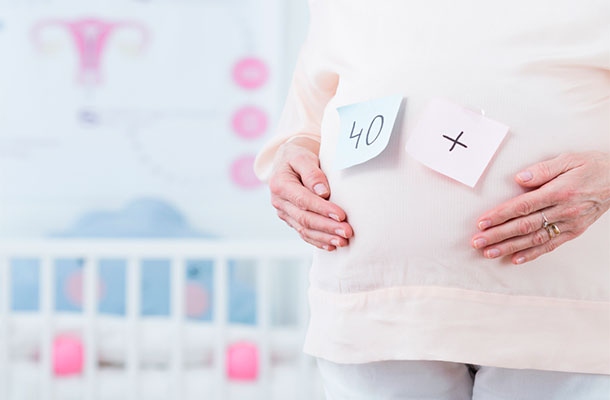
20, 30, 40… You can be a mother at different times in life, but is there an ideal age to get pregnant?
At a statistical level, according to figures from the National Institute of Statistics (INE) , the average age of women at having their first child increased by 2.57 years between 1972 and 2016. The phenomenon has gone hand in hand with an increase in births in the first child whose mothers are between 25 and 39 years old, which has increased by 13.7% between 2010 and 2016. On the contrary, children born to first-time mothers between 20 and 24 years old decreased by 17.1%, in the same period.
This change can be partially explained by educational, economic or cultural reasons, including the full incorporation of women into the labor market as well as the expansion of the role of women in society. Currently, in many cases, parents hope to have a path traveled professionally and socioeconomically before having a child.
In turn, this delay in the age of having children generates a large number of doubts and myths about the relationship between the age of the mother and the development of her pregnancy.
Biologically , the ideal age to get pregnant is between 25 and 28 years old , however biologically we could also say that longevity could be up to 40 years . Medical and technological advances have increased our life expectancy far beyond what nature designed for us, so the age range for having children is extended beyond 40 and the perspective changes.
For most women it is still important to be a mother, however today not having children is less socially judged. Many times it becomes difficult to pursue motherhood since we want to have a successful career and spend time with our children at the same time. On the other hand, there are expectations with our relationship as a couple, where many times we have children after 40, hoping to maintain a well-established couple before becoming parents.
However, it is true that delaying pregnancy beyond 35 years has as a consequence a greater risk both in terms of fertility and quality of pregnancy .

It is true that with age the quality of the ovules is reduced, for this reason it can be more difficult to get pregnant. On the other hand, at the level of pregnancy, we can speak of an increased risk of different pathologies.
The older you are, the more likely you are to have a miscarriage or premature birth. However, this increase is not relevant enough to contraindicate pregnancy after a certain age.
The older, the greater the risk for the mother. Submitting to a situation of stress for the body such as pregnancy can have a greater effect at older age, that is, pregnancy does not worsen health but can accelerate the development of pathologies for which the mother was already predisposed.
The older you are, the more likely there are malformations or chromosomal abnormalities in the baby. The risk increases with age; According to the National Down Syndrome Society (NDSS), in pregnancies at 25 years of age, the risk of Down syndrome is 1 in 1000, while in pregnancies at 40 we speak of 1 in 100. However, the risk is not considered to be much older and age is not the only factor to consider. On the other hand, today there are already a large number of tests for the early detection of these anomalies.
Always remember that these are general concepts and each person is different. Although it is clear that in general we cannot promote late pregnancy as being equally healthy, planning and reflection on a case-by-case basis will allow us to decide the best time to become a mother.
CRIANDOS - Circular breeding
In Criandos you will find essential products for your sweet expectation, check them out in this link Pregnancy